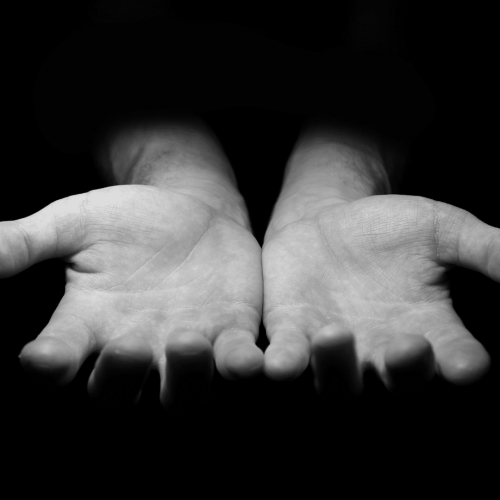As you begin a new year, it’s a good time to take stock of your relationship with God. Often this means taking a hard look at your life, thought patterns, and habits to honestly evaluate them in light of Scripture. When you honestly do that, you may discover that you’ve fallen short of God’s standards. Thankfully, God provides a way for you to come back. He does not want you to languish in your sin or wallow in self-pity. He wants you back. Still, you may ask yourself, “Surely, He can’t forgive me.” You may think what you’ve done is too vile to be pardoned. Or you might feel like you can’t even ask for Him to take you back again, since you’ve been in this situation so many times before. You may be physically and spiritually exhausted because of your struggle with a particular sin. If you can relate to this feeling of despondency, stagnation, or unworthiness, this article is for you.
I want to look at two biblical examples to learn about coming back to God. The first is Manasseh, and the second is David. Manasseh can teach us about God’s heart, and David can provide an example for our hearts. Manasseh was a terrible king—probably the worst in the whole Bible. You might think he would have a short reign, but, in fact, he reigned the longest—an astounding fifty-five years. Although his father, Hezekiah was one of Judah’s finest kings, when Manasseh took over at the ripe old age of twelve, he hit the ground running—in the wrong direction. He was a profoundly spiritual person, pursuing the dark arts like fortune-telling, omens, and sorcery. He tried to communicate with the dead through mediums and necromancy—practices that Judah’s God had called abominations. Manasseh also pursued idolatry with zeal. He rebuilt the high places that his father had torn down. He erected altars to Baal and Asherah to encourage his people to worship these Canaanite gods. However, he wasn’t satisfied with idolatry on the hills; he also installed altars in the two courtyards of Yahweh’s house to worship the host of heaven. What’s more, he even carved his own idol and set it right in the temple itself! Still, his thirst for idolatry was not slacked. His next act was as gruesome as it was shocking. He burned his sons as offerings!
Manasseh did everything he could to hurt Yahweh, the covenant God of Israel and Judah. Nevertheless, his covenant violations weren’t restricted to religious practices. He also shed so much innocent blood that he “filled Jerusalem from one end to another” (2 Kings 21:16). This man was a moral monster, and God sent prophets to Manasseh to confront his sin campaign with the following message.
2 Kings 21:12-15. Therefore, thus says the LORD, the God of Israel: Behold, I am bringing upon Jerusalem and Judah such disaster that the ears of everyone who hears of it will tingle. And I will stretch over Jerusalem the measuring line of Samaria, and the plumb line of the house of Ahab, and I will wipe Jerusalem as one wipes a dish, wiping it and turning it upside down. And I will forsake the remnant of my heritage and give them into the hand of their enemies, and they shall become a prey and a spoil to all their enemies, because they have done what is evil in my sight and have provoked me to anger, since the day their fathers came out of Egypt, even to this day.
Manasseh ignored the prophets and soldiered right on, committing abominations in epic proportions. Consequently, God brought the Assyrian army against Manasseh, resulting in his capture. They brought him to Babylon “with hooks and bound him with chains of bronze” (2 Chronicles 33:11). The Assyrians put hooks in a victim’s nose “to humiliate him completely before his captors.” Manasseh went from the most famous, wealthy, and influential person in his realm to a foreign land where his wealth, dignity, and freedom were stripped away. He hit rock bottom and had no reason to think he could ever climb out of the pit. Incarcerated in a strange land, he did the unthinkable. He repented.
2 Chronicles 33:12. And when he was in distress, he entreated the favor of the LORD his God and humbled himself greatly before the God of his fathers.
Now, if Manasseh had asked me for “favor,” I wouldn’t have granted his request. This wicked man had done too much evil. He had led the nation into idolatry, tapped into dark spiritual powers, murdered the innocent, and even sacrificed his own children! Let him rot in prison. Let the Babylonians torture him. Let him suffer execution without a trial. These are my thoughts, but they are not God’s. No, God’s heart is different toward the wicked. He says, “As I live, declares the Lord Yahweh, I have no pleasure in the death of the wicked, but that the wicked turn from his way and live” (Ezekiel 33:11). God would prefer a wicked person—even someone as atrocious as Manasseh—repent rather than face destruction. In the very next verse, God restores Manasseh to his kingdom.
2 Chronicles 33:13. He prayed to him, and God was moved by his entreaty and heard his plea and brought him again to Jerusalem into his kingdom. Then Manasseh knew that the LORD was God.
We don’t know what Manasseh said or how long the situation took, but we do know what God did. Manasseh teaches us about the God we serve. He’s not petulant or stubborn, but responsive and eager to forgive. Manasseh shows us just how extravagant and extreme our God is when it comes to mercy. He is a God who does not wish “that any should perish, but that all should reach repentance” (2 Peter 3:9). These are not just nice words. Manasseh shows us that, even when someone commits horrifying crimes against God and others, Yahweh yearns to show mercy if only that one will turn. Nevertheless, our God will execute the punishment if necessary.
I wonder, how do you feel about your enemies? Our world is rife with tribalism and outrage. How often do you see someone rage-post on social media? It just feels so good to light up that ignorant person who disagrees with your politics, your values, or your lifestyle. Yet, that’s not how our God is. As those seeking to “be imitators of God as beloved children” (Ephesians 5:1), we must strive to “walk in love as Christ loved us and gave himself up for us” (Ephesians 5:2). Let’s be “kind to one another, tenderhearted, forgiving one another, as God in Christ forgave you” (Ephesians 4:32). If we are God’s children, then let’s also be forgivers, eagerly looking to show mercy in our dealings
with others.
So, Manasseh teaches us that no matter how far you stray from the path of righteousness, you can still come back, repent, and experience God’s abundant mercy and forgiveness. Nevertheless, Manasseh doesn’t teach us how to repent. For that, we must turn our attention to David—the prototype for penitence.
Spring came; the men went off to war, but King David stayed home. “Late one afternoon, when David arose from his couch and was walking on the roof of the king’s house…he saw from the roof a woman bathing” (2 Samuel 11:2). Overcome with desire, David sent for and slept with Bathsheba, even though he knew she was married to Uriah, one of David’s mighty men. (See 2 Samuel 23:39.) He may have thought he had gotten away with this impulsive decision, but in due time, she sent word that she was pregnant. Instead of coming clean, informing Uriah, crying out for mercy to God, and repenting, David decided to cover it up. He brought Uriah home from the battlefront, thinking the beleaguered soldier would take advantage of the brief furlough and enjoy the pleasures of the marriage bed. Instead, the honorable Uriah refused to go home to his wife, insisting that he would not indulge in any comforts whilst his comrades were out in tents suffering the hardships of battle. The next day, David got Uriah drunk, thinking an intoxicated man would be more pliable. Still Uriah would not go home.
Once again, David had the chance to do right by Uriah and confess his egregious indiscretion. Instead, he wrote up an order for Joab to put Uriah in the frontline of battle and have the men around him retreat. Unbelievably, he had the noble Uriah carry the letter containing his own death sentence to his commanding officer. All went according to plan: Uriah died, Bathsheba mourned, and David married her. Depending on the timeline, either people would assume Bathsheba’s pregnancy resulted from Uriah prior to his death or from David on their wedding night. As for David, crisis was averted, and no one would ever know what happened—no one but God.
When God sent Nathan to confront David, he told him a story about a rich man who violated his poor neighbor.
2 Samuel 12:1-4. And the LORD sent Nathan to David. He came to him and said to him, “There were two men in a certain city, the one rich and the other poor. The rich man had very many flocks and herds, but the poor man had nothing but one little ewe lamb, which he had bought. And he brought it up, and it grew up with him and with his children. It used to eat of his morsel and drink from his cup and lie in his arms, and it was like a daughter to him. Now there came a traveler to the rich man, and he was unwilling to take one of his own flock or herd to prepare for the guest who had come to him, but he took the poor man’s lamb and prepared it for the man who had come to him.”
As soon as David heard about this horrible injustice, he erupted in anger, declaring, “As Yahweh lives, the man who has done this deserves to die, and he shall restore the lamb fourfold, because he did this thing, and because he had no pity” (2 Samuel 12:5-6). Then in one of the most dramatic moments in all of Scripture, Nathan turned to David and said, “You are the man!” Talk about a bait and switch! David had just condemned himself. He had robbed his powerless neighbor when he had access to all kinds of other women. Nathan continued God’s proclamation of judgment upon David and his household. Once again, David found himself at a crossroad. He could ignore Nathan, send him into exile, or have him killed. He could come up with some fantastic excuse, find some way to blackmail Nathan, or perhaps threaten his family. David could have pursued a whole range of options, but instead, he chose honesty. “I have sinned against Yahweh,” David admitted (2 Samuel 12:13). Finally, after one sin was snowballing into the next, David stopped and faced the truth of the matter. He had sinned. He owned it, and now God could work. Thankfully, we know a great deal about David’s heart with respect to this incident because he wrote about it in Psalm 51.
Psalm 51:1-4. Have mercy on me, O God, according to your steadfast love;
According to your abundant mercy blot out my transgressions.
Wash me thoroughly from my iniquity,
And cleanse me from my sin!
For I know my transgressions,
And my sin is ever before me.
Against you, you only, have I sinned
And done what is evil in your sight,
So that you may be justified in your words
And blameless in your judgment.
As Manasseh taught us about God’s heart towards the sinner, David teaches us about the sinner’s heart towards God. It will not do to be presumptuous or rationalizing in our repentance. We don’t tell God He has to forgive us or that our sin really wasn’t that bad compared to others. No, coming back to fellowship with God involves brutal honesty and raw confession. Tell Him what you did. Don’t sugarcoat it or minimize the consequences. Look at David’s example. He admits his sin; he owns it; he recognizes how offensive it is to God. Then he asks for God to cleanse him—something he cannot do himself.
Psalm 51:7-12. Purge me with hyssop, and I shall
be clean;
Wash me, and I shall be whiter than snow.
Let me hear joy and gladness;
Let the bones that you have broken rejoice.
Hide your face from my sins,
And blot out all my iniquities.
Create in me a clean heart, O God,
And renew a right spirit within me.
Cast me not away from your presence,
And take not your Holy Spirit from me.
Restore to me the joy of your salvation,
And uphold me with a willing spirit.
This is how you come back. Confess, repent, and pray for cleansing and restoration. Scripture says that “If we confess our sins, he is faithful and just to forgive us our sins and to cleanse us from all unrighteousness” (1 John 1:9). This is easier said than done because of two major obstacles. First of all, it is sometimes hard to get honest. For example, Manasseh had to lose everything before he would look up and recognize that Yahweh was the true God who alone could save him. David dug his hole deeper and deeper, ignoring a thousand opportunities to stop and turn back before Nathan finally confronted him. How about you? Is it hard for you to face your sins? What stops you from getting honest and confessing them to God? Perhaps you’re embarrassed that so many years into your walk with the Lord, you’re still dealing with this issue. Or, maybe you’ve tricked yourself into thinking you can keep your sin and God won’t mind, at least for a while. Others might struggle with pride, not wanting to admit to messing up. Whatever your hesitation is, you must face the facts if you want to come back to the sweetness of fellowship with God. Honesty will always be the first step—honesty with yourself, honesty with God, and honesty with how your actions affect others. But, once you get honest and confess and cry out for God’s mercy, many of us struggle with a second major issue—accepting His forgiveness.
When we fall into sin, we often think we should be punished for it. Have you ever felt unworthy of God’s forgiveness—like it’s just too easy to confess and pray? You might think what you’ve done is so bad that it would be wrong to even ask for help. I’ve certainly been there, wanting to suffer for a while first before reaching out to God. Perhaps that’s our sense of justice. We think that by staying away from God for an extended period, we’ll be outside His protection, experiencing the negative consequences we so richly deserve. Maybe you’re worried about hypocrisy, or you’re just exhausted by yo-yoing back and forth between righteousness and sin. Whatever the reason, whatever the blockage, whatever the feeling, I urge you to fight through it. Don’t hold yourself back from accepting His forgiveness. Don’t fuss about punishments. That’s His responsibility, not yours. Don’t worry about justice. The cross took care of that. Don’t stress about hypocrisy. Serve Him wholeheartedly, and let the past be the past.
Imagine a mother with her three-year-old boy. He’s spilled chocolate ice cream all over the living room couch. She loves that couch and probably paid too much for it. It’s likely ruined now. She has justifiable wrath toward her son, which she expresses by shouting, “No! I told you not to eat in here! Look at what you’ve done!” The toddler immediately bursts into tears, gobs of chocolate washing down his face. “I’m sorry,” he ekes out through sobs, looking up sheepishly. “It’s ok, honey. Mommy forgives you. Just don’t do that again. Now let’s go get you cleaned up,” she says. Now, what if the boy can’t bring himself to accept her forgiveness and starts banging his head into the wall. How would the parent feel? Would she think, “What a good boy I have that he can punish himself?” No, she wouldn’t think that! She has already forgiven him; his self-harm just hurts her more. So it is with God—our heavenly Father. He wants us back. If He deems a punishment necessary, He’ll carry it out. It’s not for us to stew in limbo between forgiveness and reconciliation. Once forgiven, come back to Him.
Perhaps no place more clearly shows us God’s heart for the lost than the Parable of the Prodigal Son. The son had repented of his rebellious lifestyle and decided to come home. The boy had no reason to think he would return to the honored position of son and had determined to request he be made like one of the servants. The father saw his boy when he was still a long way off. He “felt compassion and ran and embraced him and kissed him” (Luke 15:20). The boy barely got his speech started when the father ordered the servants to bring the best robe, a ring, and shoes to restore him to his previous status. The father wasted no time wallowing, shaming, or punishing the lad. He skipped that and went right into celebration mode, organizing a huge party with a fattened calf. This little story illustrates the heart of our God: “For this my son was dead, and is alive again; he was lost, and is found” (Luke 15:24). With a God like this, who wouldn’t want to come back to Him? So, I encourage you, whatever your sin, it’s not worse than Manasseh. Be like David, and get honest and ask God to cleanse you. Then once He’s forgiven you, accept it and return to a restored relationship with Him.




0 Comments